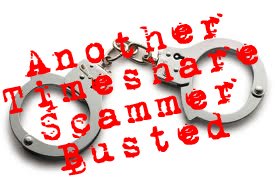The Federal Trade Commission (FTC) and state agencies have announced a major takedown of timeshare property resale scams used to rope in unsuspecting consumers.
The agency announced 191 separate actions, including three FTC cases, 83 civil actions filed by 28 states, and 25 actions taken by law enforcement in 10 other countries. Also, 184 individuals are facing criminal prosecution by federal and state prosecutors.
“Con artists take advantage of timeshare owners who have been in tough financial straits and are desperate to sell their timeshares,” Charles A. Harwood, Acting Director of the FTC’s Bureau of Consumer Protection, said during a press conference in Miami.
“They persuade owners to pay fat up-front fees by saying they have someone ready to buy the property, but that’s a lie,” said Harwood. Harwood had this advice for timeshare owners: “Never pay for a promise, get everything in writing first, and pay only after your unit is sold.”
“We cannot allow our vulnerable real property owners to continue to be the target of fraud schemes,” said Wilfredo A. Ferrer, U.S. Attorney for the Southern District of Florida.
“These victims, many of them elderly or in financial distress, looked to sell their units to help make ends meet or pay other bills. Instead, they were defrauded out of more than $14 million in total. Such fraud will not be tolerated,” said Ferrer.
How it works
Fraudulent timeshare resellers lure consumers into paying hefty upfront fees, falsely claiming to have interested buyers ready to pay top dollar for the properties. They claim sales are about to happen, but there are no buyers, and consumers lose hundreds or thousands of dollars.
These scams reach consumers via unsolicited email, and radio, TV and online advertising. To help people avoid these kinds of scams, the FTC has updated its consumer education materials on new and emerging travel and timeshare resale frauds.
Top Photo Credit: James Benjamin
Source: Consumer Affairs

